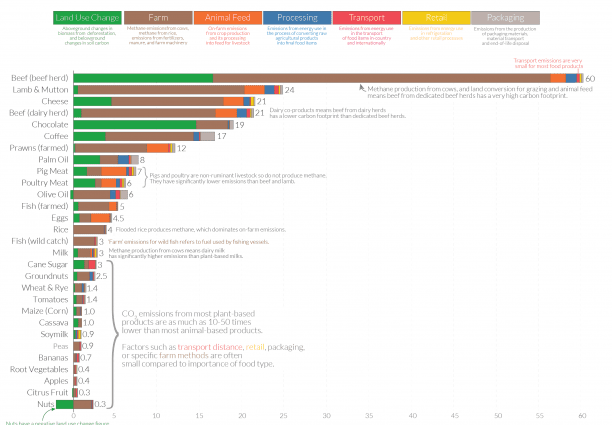Clár ábhair
Food: Knowing the environmental impact of your plate is now possible

“Discover the environmental impact of your plate”, here is the promise of AGRIBALYSE, the new free and public database, intended for farmers and consumers.
Improve the environmental impact of your plate
ADAM (Ecological Transition Agency) and INRAE (National Research Institute for Agriculture, Food and Environment) have been working on this project for more than 10 years, which has become real today. They created this tool, at the service of agricultural, food and consumer professionals, to improve their practices. The platform brings together 2 food products and 500 agricultural products, considering a certain number of elements (water, air, earth, etc.). It takes into account all the stages of the product’s life cycle: how it is grown, what transformations it has undergone and how it has been transported. The goal is to perform its products while reducing their impact on the environment. Manufacturers therefore have access to it online, but also farmers, growers and consumers. Consumption patterns are starting to change in France and the population is increasingly seeking to know the origin of their food purchases or the way in which they are grown or manufactured. She is also gradually becoming aware of the stakes her mode of consumption has on the environment.
What information is available on the platform?
Scientists and experts from the agri-food, agricultural and environmental sectors have collected comprehensive data, from raw to processed products. They can therefore relate to wheat or cow feed, the product leaving the farm or that ready to be consumed. The various employees referenced foods according to 14 indicators, such as water consumption, land use, ionizing radiation or climate change. AGRIBALYSE is primarily aimed at agriculture and agri-food players, hoping that they will use this data and “put in place an ecodesign strategy to reduce the impact of their production”. Individuals can view the data and thus reduce their environmental impact when shopping. For a product, the lower the score, the lower the impact. The list of foods also concerns collective catering, to help it improve its menus and recipes, from a nutritional and environmental point of view.
Read also: Attention disorders: Study reveals the numbers are above reality










